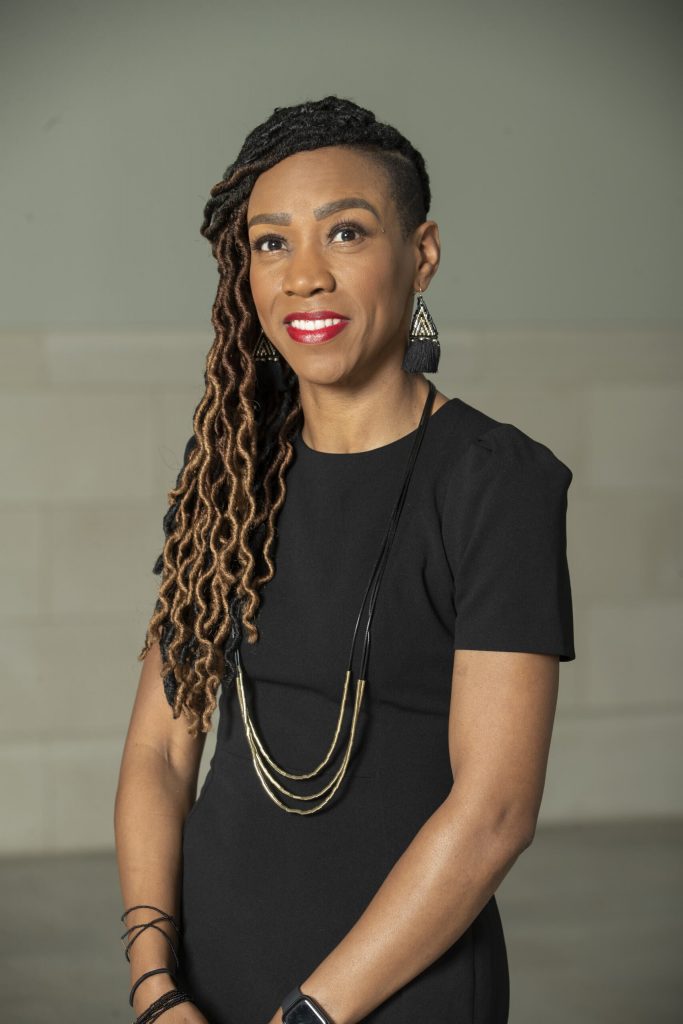
Lisa Cressman is an Episcopal priest committed to ensuring pastors thrive not only in the craft and process of preaching, but also in its spirituality. She is the founder and steward of Backstory Preaching. To learn more about her work and witness, visit www.backstorypreaching.com. To join The Collective, go to https://www.backstorypreaching.com/collective.
Starlette Thomas: What’s the backstory of Backstory Preaching? How did you come to this work?
Lisa Cressman: Backstory Preaching came into being when I was awakened in the middle of the night in 2014 with this question: “What would happen if preachers received long-term support in a manner that was as much spiritual direction as it was coaching in the craft of preaching?” I knew to the depths of my being that this was the direction of the rest of my ministry— and that it was going to work. Preachers would be more connected to God, so less likely to burn out and more able to preach effectively— to the glory of God.
I am an Episcopal priest, spiritual director, and preacher of 30+ years. Backstory Preaching is an ecumenical, online ministry that officially launched in 2016 with 11 preachers in a year-long mentorship. Today, we serve thousands of preachers, lay and ordained, around the world.
ST: Why is the preacher’s backstory important? What do you hope the listener hears or discovers?
LC: Our backstory—the life experiences that shape our beliefs, hopes, fears, and ways of relating to the world—influence our theology and, in turn, preaching. By examining deeply our own history and assumptions, circumstances and fears, disappointments and hopes, we actually tap into the universal experience of humanity. We become better aware of our wisdom and our blind spots so that we arrive at something truer, deeper, freer.
When we cultivate awareness of what has shaped us and where God meets us, we discover Good News for ourselves first so that preaching flows naturally and authentically without striving. The intersection of the text and our own curiosity, resistance, questions, and interests provides the fertile soil for the Spirit to grow within us the sermons only we can preach. We may not mention a single personal detail from this internal work in our sermon. And yet, the deep work of self-reflection will generously inform every word.
We trust the Spirit nudges preachers in directions their listeners need through the preacher’s own wrestling and discovery in sermon preparation. As a result of the preacher’s process and deep connection with God, we hope listeners encounter a clear message of Good News that is authentic to the preacher and relevant to the listener. Ideally, the sermon will keep the listeners’ attention from start to finish and leave them with an invitation to transformation.
ST: What advice would you give a preacher who hates sermon prep?
LC: First and foremost, connect with God through scripture and prayer outside of sermon prep for its own sake. There is no replacement for encountering God regularly as a beloved child who happens to be called to preach.
Secondly, stop doing sermon prep as your volunteer job. Acknowledge the time it takes to prep an effective sermon, schedule, and hold sacred that time during your work week, and have the difficult conversation with your congregation about what else can be accomplished given the hours in your week. God made you human, and there are limits to your work. Acknowledging this reality and making difficult decisions about your administrative and ministry commitments is essential to a fruitful preaching ministry.
Finally, get support. Preaching is difficult work, and too many preachers work in isolation. Having a community who “gets it” will spark joy and inspiration for sermon prep. Resources to make sermon prep more efficient and effective help, too.
ST: How has this work impacted your own preaching life?
LC: We apply lectio divina to sermon prep so that sermons are born from prayer. We invite preachers to be transformed by the good news themselves before they offer it to their listeners. As a result, I come to the task of preaching with more vulnerability and humility, knowing I am likely to be changed. Sometimes, the inherent growth is fun. Sometimes it’s painful. But it is always life-giving.
In addition, this process is extremely adaptable and applicable beyond sermons. From personal journaling to facilitating group discussion to writing my books, this practice works on a spiritual level every time, and it helps me discern one clear message that is authentic to me, regardless of the medium.
ST: What do you know for sure about the craft?
LC: Craft requires practice, feedback, and coaching to grow. At best, most preachers receive a couple of semesters of homiletics in seminary, but they’re expected to “perform” as virtuosos when they first enter the pulpit. The reality is that just as becoming a compelling writer or musician or artist requires years of intentional development, becoming a compelling preacher requires the same. Unfortunately, far fewer venues for this long-term development exist for preachers.
ST: What’s next for Backstory Preaching?
LC: We are thrilled to have received a Lilly Endowment, Inc. Compelling Preaching Initiative grant in partnership with the Episcopal Diocese of Texas to enhance and expand our online preaching community, The Collectives. We’re coming to the end of our research and planning stage and will be rolling out exciting new initiatives to better support preachers in the months and years ahead. We’re seeing first-hand the transformation that occurs when preachers align their calendars with their call, have a sermon prep process they can rely on week after week, and connect with God and other preachers to deepen their own spirituality and grow in their craft.
The Spirit is at work, and we’re doing our best to hang on for the ride!

